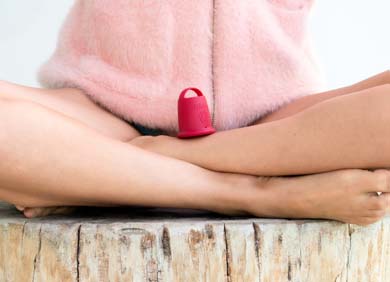Switch from disposable tampons and pads to Beppy! Experience ultimate comfort, hygiene, convenience, and sustainability.

If not, surely you are one of the lucky ones. Menstrual poverty is a problem that affects millions of women around the world. This happens when the prices of feminine hygiene products are so high that they become unaffordable items for people of menstruating age. Likewise, this means not having the necessary resources to be able to cope with the days of menstruation in sufficient hygienic conditions. This includes not having the right tools, having to change in precarious spaces, and lack of money and education.
This affects girls and women of all ages around the world, an estimated 500 million menstruating people lack access to menstrual products and hygiene facilities. Many are forced to use rudimentary products, such as: newspapers, socks, toilet paper, cotton pads, old shirts and plastic bags. This not only means an obvious problem for the environment, since these products are not biodegradable, but they put health at risk and worsen the risk of infections and diseases by not being sterilized or having the necessary materials to be safe and comfortable.
On the other hand, the lack of appropriate feminine hygiene products generates insecurity and discomfort in women, which leads them to restrict themselves from going out and feel that they must stay at home. 49% of people between the ages of 14 and 21 have missed full days of school for not having optimal hygiene items for their period. This is also directly related and tends to worsen with the situation of poverty. 18.9% of menstruating people in poverty cannot access products for their period and also have difficulties in having clean and safe spaces to manage their menstruation. This means that 9% of these people cannot even access a bathroom to change their menstrual hygiene items.
So what can be done to overcome this problem? At an individual level, it is best to contribute to causes and NGOs that seek to alleviate the problem in different regions of the world in conditions of poverty. Donating, supporting and participating in these campaigns makes it possible to generate short-term change in specific cases. However, there are broader changes that can bring a structural change to this problem. These are:
Did you know that a menstrual cup is one of the cheapest menstrual products? Considering the fact that you can use it up to 5 years! Order your menstrual cup here!
€36,95
* Prices incl. VAT, Shipping costs€39,99
* Prices incl. VAT, Shipping costs€34,95
* Prices incl. VAT, Shipping costsLooks like you haven't made a choice yet.